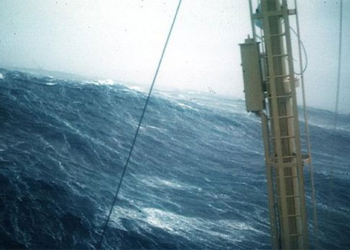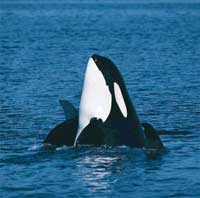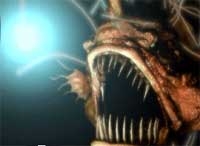A 4-meter-long hammerhead shark washed ashore with 40 fully developed pups in its belly, but researchers are still unclear about the cause of its death.
Authorities are unsure about the cause of death of the mother shark. The great hammerhead shark (Sphyrna mokarran) was discovered on April 20 in shallow waters near Orange Beach. A group of passersby pulled the lifeless shark onto the beach and contacted the city’s coastal resource team for assistance in collecting the carcass.
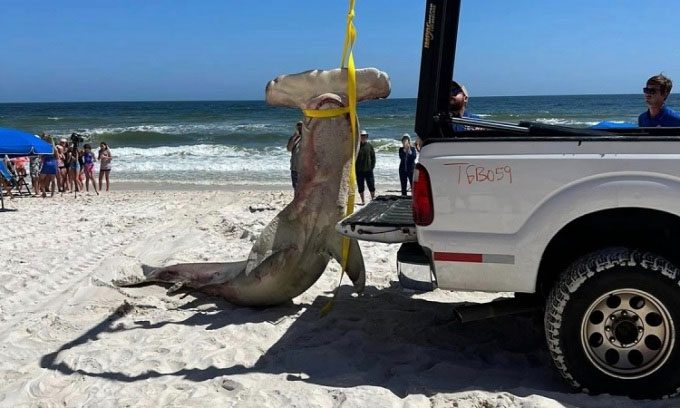
The carcass of the mother hammerhead shark being transported by authorities. (Photo: MEF).
Since the hammerhead shark was intact, authorities reached out to researchers from the Marine Fisheries Ecology (MFE) at the University of Mississippi. The research team conducted an examination of the animal the following day. They found 40 pups in the mother hammerhead’s belly, each measuring about 0.4 meters long. Both the mother and her pups likely died before washing ashore.
The hammerhead shark is classified as critically endangered according to the International Union for Conservation of Nature’s Red List. There are no clear estimates on the remaining global population, but researchers believe that the numbers of this species have been declining year by year.
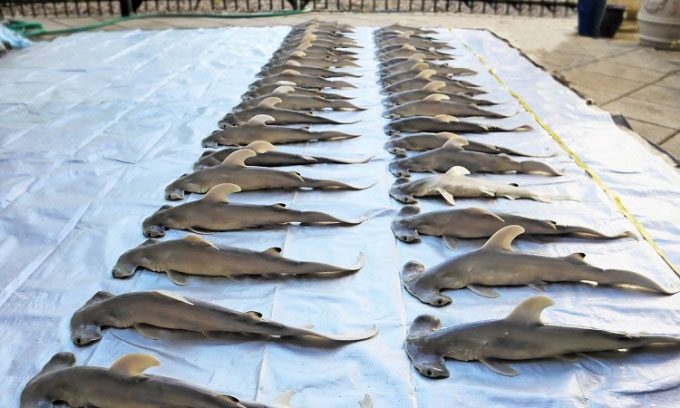
The dead hammerhead shark pups that died before birth. (Photo: MEF).
During the examination, the research team collected and inspected vital organs, including the heart, liver, esophagus, stomach, spleen, kidneys, and pancreas, but found no signs of injury or disease in any of the organs, according to a representative from MFE. They also sent samples of the vertebrae, muscle tissue, and fins of the animal for further analysis in the laboratory. The shark’s stomach was empty. It is common for female hammerhead sharks to go several months without eating during pregnancy, so this was expected.
Although the exact reason for the shark’s death has yet to be determined, the research team from MFE suspects that the cause may be related to fishing activities. Hammerhead sharks are particularly sensitive to physiological stress from being caught compared to most other shark species. Being pregnant could further increase that stress. The pups will be preserved and donated to local classrooms to educate students about the reproductive process of sharks.








































